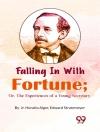John Cleland’s ‘Memoirs of Fanny Hill’ stands as a seminal work in the realm of erotic literature, intricately weaving the tale of a young woman’s sexual awakening in 18th-century England. Written in a rich, colloquial style that combines both wit and detail, Cleland employs a mostly first-person narrative that immerses readers in Fanny’s provocative experiences. The book transcends mere titillation, exploring themes of desire, morality, and the complexities of sexual agency within the social constraints of the era. Moreover, its publication in 1748 positioned it provocatively against the backdrop of growing debates around sexuality and censorship, marking it as both revolutionary and contentious in its literary context. An understanding of Cleland’s own turbulent life enhances the reading of this text; he faced personal adversity, including imprisonment for debt, which likely influenced his focus on the themes of desire and freedom. As a contemporary of other notable authors, Cleland’s views were reflective of and responsive to the shifting moral landscapes of his time, offering a critical lens into societal norms surrounding women and sexuality. ‘Memoirs of Fanny Hill’ is not merely a provocative tale but a profound exploration of human experience and societal expectation. For readers seeking to delve into an essential work that challenges the conventions of its time, and engages with enduring discussions about sexuality and identity, Cleland’s masterpiece remains a crucial text deserving of exploration and reflection.
A propos de l’auteur
John Cleland (1709–1789) was an English novelist most renowned for his controversial novel ‘Memoirs of Fanny Hill’, published in 1748. The book, also known as ‘Fanny Hill’, is one of the most prosecuted and banned books in history due to its explicit descriptions of female sexual experience. Despite the profanity associated with it, ‘Fanny Hill’ is considered a seminal work in the genre of erotic literature and has been analyzed for its unique narrative style and socio-historical context. Born to a British naval officer in Kingston upon Thames, Cleland led a tumultuous life, which included a period in the East India Company and an unfortunate stint in debtors’ prison. It was during his imprisonment that Cleland completed ‘Memoirs of Fanny Hill’, likely motivated by a need for income. Cleland’s literary style is characterized by a blend of satirical wit and elaborate, almost poetical prose. His work provides a unique glimpse into the sexual mores and class distinctions of 18th century England. Despite the notoriety of ‘Fanny Hill’, Cleland’s subsequent works never achieved similar fame, and he spent much of his career grappling with financial constraints and censorship. Nonetheless, his landmark novel continues to be studied and has secured his place within the canon of English literature.












